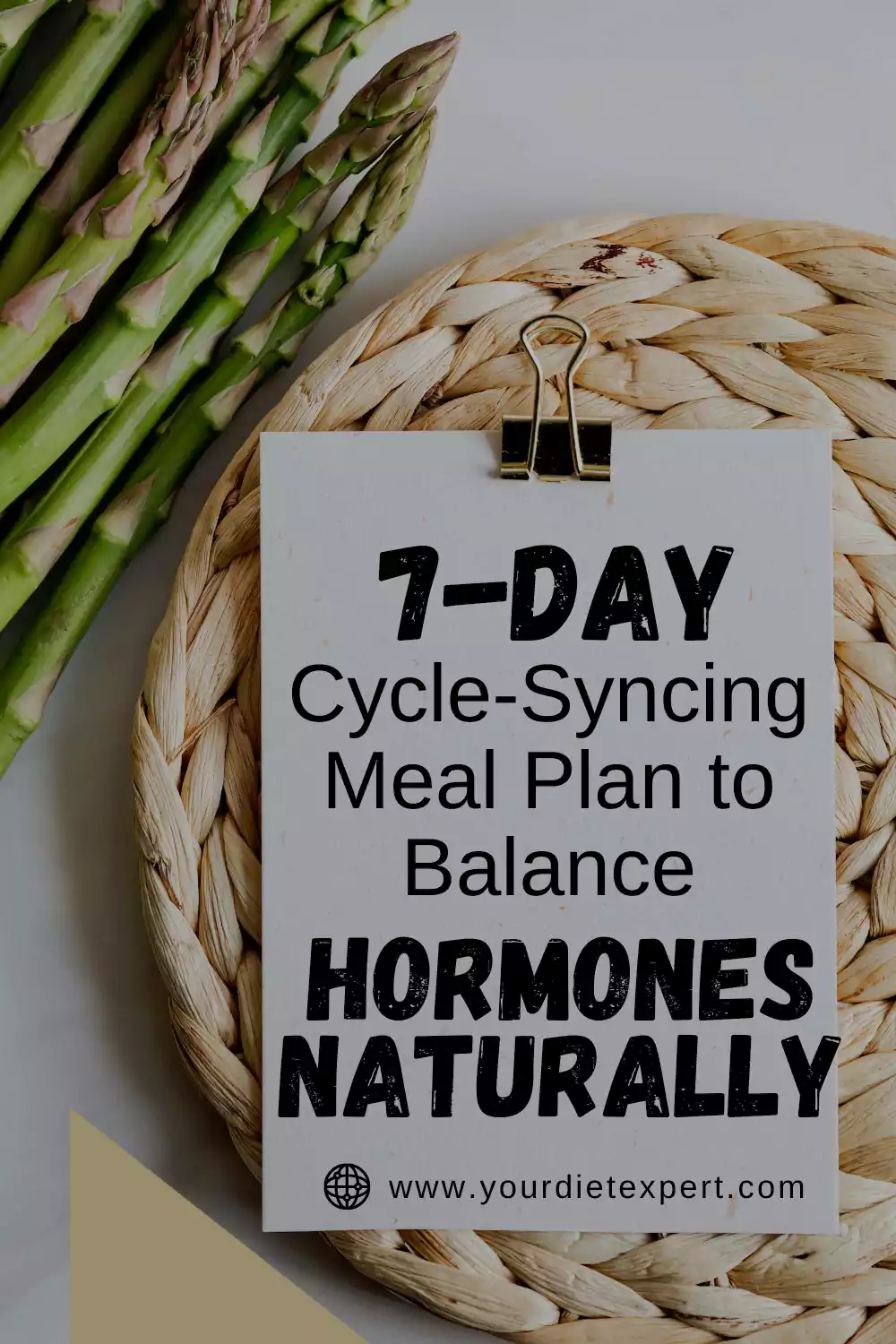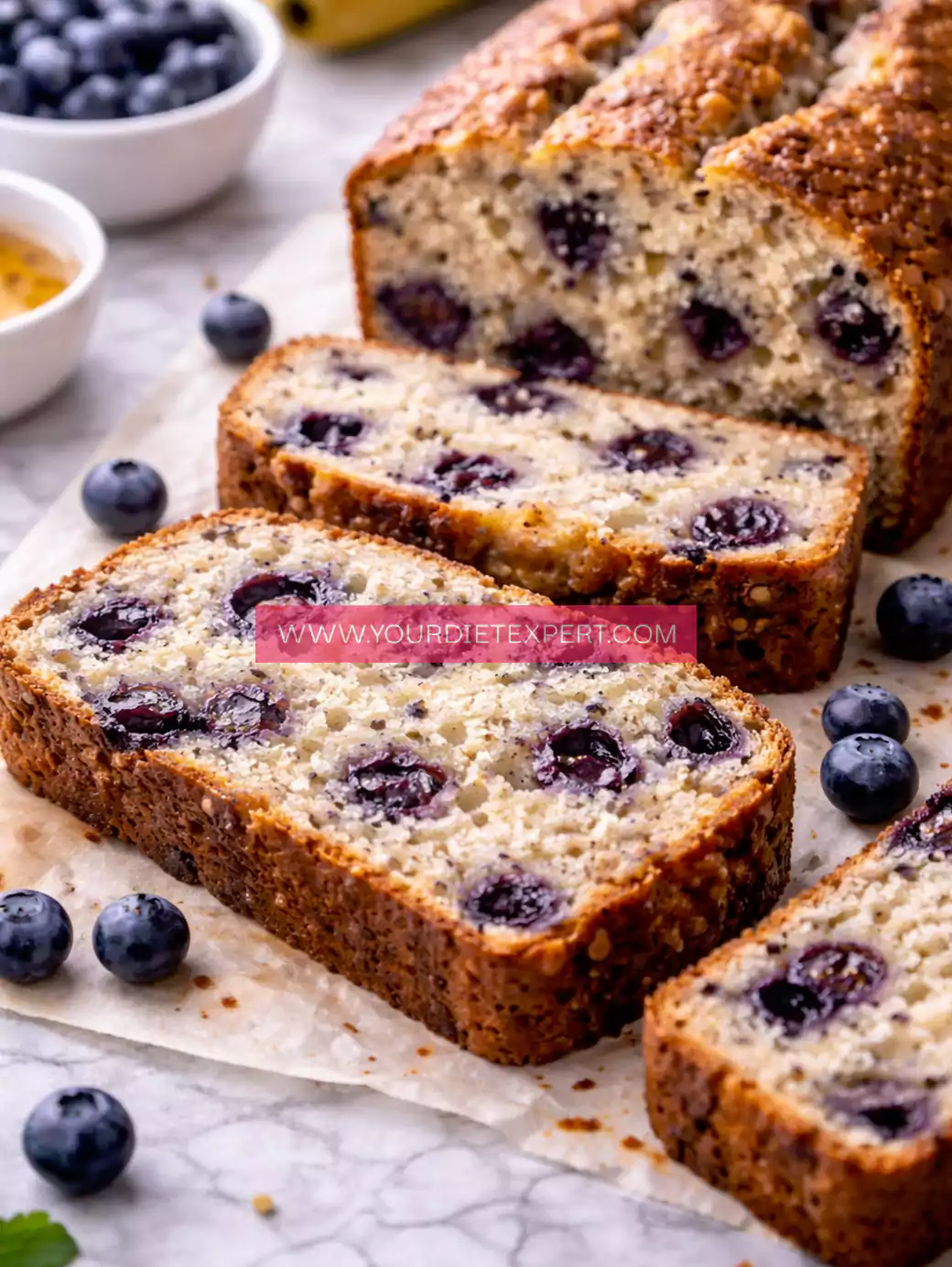Hormones are the unsung conductors of a woman’s body — orchestrating energy, mood, skin, metabolism, appetite, and even motivation. Yet, most of us eat the same way every single day, ignoring that our body’s needs shift week by week with our menstrual cycle.
That’s where cycle-syncing nutrition comes in — an approach that matches your food, fitness, and lifestyle habits to your four hormonal phases. When done right, it can help reduce PMS, support fertility, stabilize mood, and bring back that steady, glowing energy you used to have.
Let’s break it down scientifically and practically — and then I’ll share a 7-day meal plan to help your hormones thrive naturally.
To get started with the best hormone-supportive ingredients, check out our in-depth guide on 12 Hormone-Balancing Foods Every Woman Should Eat (Naturally Boost Energy & Mood!). It breaks down exactly how specific foods like salmon, flaxseeds, and leafy greens help regulate estrogen and progesterone naturally.
🧬 What Is Cycle Syncing — And Why It Works
The menstrual cycle isn’t just about your period. It’s a 28–32-day hormonal rhythm where estrogen, progesterone, and testosterone rise and fall in predictable patterns. These shifts affect:
- Metabolism (how your body uses energy)
- Mood & stress tolerance (via cortisol and neurotransmitters)
- Appetite & cravings
- Exercise recovery & endurance
- Insulin sensitivity and fat-burning
By aligning your food choices with these changes, you give your body the raw materials it needs when it needs them most.
🩸 The 4 Phases of the Female Cycle (and Their Nutritional Needs)
| Phase | Days | Dominant Hormones | Focus | What Your Body Needs Most |
|---|---|---|---|---|
| Menstrual | 1–5 | Estrogen & progesterone low | Rest, replenish, iron support | Iron-rich foods, hydration, warm soups |
| Follicular | 6–13 | Rising estrogen | Energy, creativity, detox | Fresh produce, antioxidants, fiber |
| Ovulatory | 14–16 | Estrogen peaks, testosterone spikes | High energy, sociability | Light meals, hydration, zinc, B vitamins |
| Luteal | 17–28 | Progesterone dominant | Calm, nurture, serotonin support | Complex carbs, magnesium, B6, calcium |
Each phase requires subtle nutrition shifts — not a restrictive diet, but a biological alignment that makes your body feel more in sync.

🥗 7-Day Cycle-Syncing Meal Plan to Balance Hormones Naturally
This plan is realistic, science-based, and designed for busy women. It uses hormone-balancing foods like leafy greens, omega-3 fats, cruciferous vegetables, seeds, and slow carbs.
💡 Pro tip: Adjust the plan depending on where you are in your cycle. You can start Day 1 on the first day of your period or jump in at your current phase.
🩸 Day 1–2 (Menstrual Phase) – Rebuild, Rest & Replenish
Hormones are at their lowest, and your body is shedding the uterine lining — focus on warm, nourishing, iron-rich meals that rebuild blood and reduce cramps.
Nutritional focus: Iron, vitamin C (for absorption), magnesium, hydration.
Breakfast:
- Warm oatmeal with chia seeds, cinnamon, and a spoon of almond butter
- Herbal tea with ginger (anti-inflammatory)
Lunch:
- Lentil and spinach soup with olive oil drizzle
- Side of roasted sweet potatoes (for steady carbs)
Snack:
- Handful of pumpkin seeds + orange slices (iron + vitamin C combo)
Dinner:
- Salmon with sautéed kale and quinoa
- Chamomile tea for muscle relaxation
Why it works: Iron replenishes blood loss; omega-3s ease cramps; magnesium helps reduce irritability.
🌱 Day 3–4 (Follicular Phase) – Recharge & Reset
Estrogen rises, energy climbs, and mood lifts — it’s time for fresh, vibrant, light meals that support detox and metabolism.
Nutritional focus: Fiber, probiotics, cruciferous veggies, antioxidants.
Breakfast:
- Greek yogurt with flaxseed, blueberries, and honey
- Green tea for antioxidants
Lunch:
- Broccoli + chickpea salad with tahini dressing and lemon
- Whole-grain pita
Snack:
- Apple slices with almond butter
Dinner:
- Grilled chicken or tofu with quinoa, spinach, and roasted veggies
- Side of fermented sauerkraut
Why it works: Fiber and probiotics support estrogen metabolism through the gut-liver axis; antioxidants protect new cells.
💫 Day 5–6 (Ovulatory Phase) – Glow & Go
Estrogen peaks; you feel social, confident, and energized. Meals should be light, hydrating, and anti-inflammatory to support ovulation.
Nutritional focus: Zinc, B vitamins, antioxidants, hydration.
Breakfast:
- Smoothie with spinach, banana, chia seeds, and Greek yogurt
Lunch:
- Shrimp salad with avocado, cucumber, arugula, and olive oil
Snack:
- Berries with pumpkin seeds
Dinner:
- Grilled salmon with asparagus and brown rice
- Sparkling water with lemon
Why it works: Zinc supports egg health; B vitamins help with ovulation energy; antioxidants protect cells from oxidative stress.
🌻 Day 7 (Luteal Phase) – Soothe & Stabilize
Progesterone takes the lead — body temperature slightly rises, and cravings may kick in. Support this phase with complex carbs, magnesium, and serotonin-boosting foods.
Nutritional focus: Whole grains, dark chocolate (magnesium), B6, tryptophan.
Breakfast:
- Scrambled eggs with spinach and whole-grain toast
Lunch:
- Lentil stew with carrots and turmeric
Snack:
- Handful of dark chocolate chips and walnuts
Dinner:
- Turkey chili with beans and bell peppers
- Warm chamomile or rooibos tea
Why it works: Complex carbs increase serotonin; magnesium and B6 ease PMS; turkey contains tryptophan for calm sleep.
🌿 The Science Behind Cycle-Syncing Foods
- Iron & Omega-3s (Menstrual phase): Replace lost iron and reduce inflammation. Iron fuels red blood cells; omega-3s lower prostaglandins (which trigger cramps).
- Cruciferous vegetables (Follicular): Broccoli and cauliflower promote estrogen detox via DIM and I3C compounds.
- Zinc (Ovulatory): Zinc aids egg health, boosts progesterone, and supports immunity.
- Magnesium & Vitamin B6 (Luteal): These nutrients regulate GABA (a calming neurotransmitter) and reduce PMS symptoms.
- Probiotic foods: Influence estrogen clearance through the gut-liver loop (“estrobolome”).
- Fiber: Helps flush used hormones out of the body through the digestive tract.
In short: food gives your hormones raw materials, your liver processes them, and your gut eliminates the excess. Balance any of these three — and you balance your hormones.

🧠 Personal Note: My Experience with Cycle Syncing
When I started tracking my cycle and adjusting my meals — something clicked.
Instead of random fatigue, mood swings, and sugar cravings, I felt steady.
I knew when my energy would rise (follicular phase) and when to give myself grace (luteal). The cravings that used to derail me turned into signals my body was giving me — magnesium? carbs? rest?
Cycle syncing taught me that women’s bodies aren’t inconsistent — they’re rhythmic.
And when we eat in harmony with that rhythm, our body rewards us with better focus, calmer moods, and balanced hormones.
🩺 Expert Tips to Make This Meal Plan Work for You
✅ Track your cycle: Use apps like Clue or Flo to identify which phase you’re in.
✅ Hydrate well: Hormone balance depends on cellular hydration — aim for 2.5–3L daily.
✅ Move gently during menstruation: Yoga, stretching, or walks instead of high-intensity workouts.
✅ Seed cycle: Add flax & pumpkin seeds in follicular/ovulatory phases, sunflower & sesame in luteal — supports estrogen/progesterone balance.
✅ Avoid extremes: Skip restrictive diets or fasting during luteal/menstrual phases — it can raise cortisol and worsen PMS.
✅ Support your liver: Limit alcohol and processed foods; they block estrogen detox pathways.
🕊️ Key Takeaways
- Your hormones thrive on pattern-based nutrition, not perfection.
- Each week of your cycle has unique needs — learn them, respect them.
- Simple food swaps (more fiber, healthy fats, probiotics) make a profound difference.
- Cycle syncing isn’t a trend; it’s biochemistry applied smartly to real life.




Leave a Reply